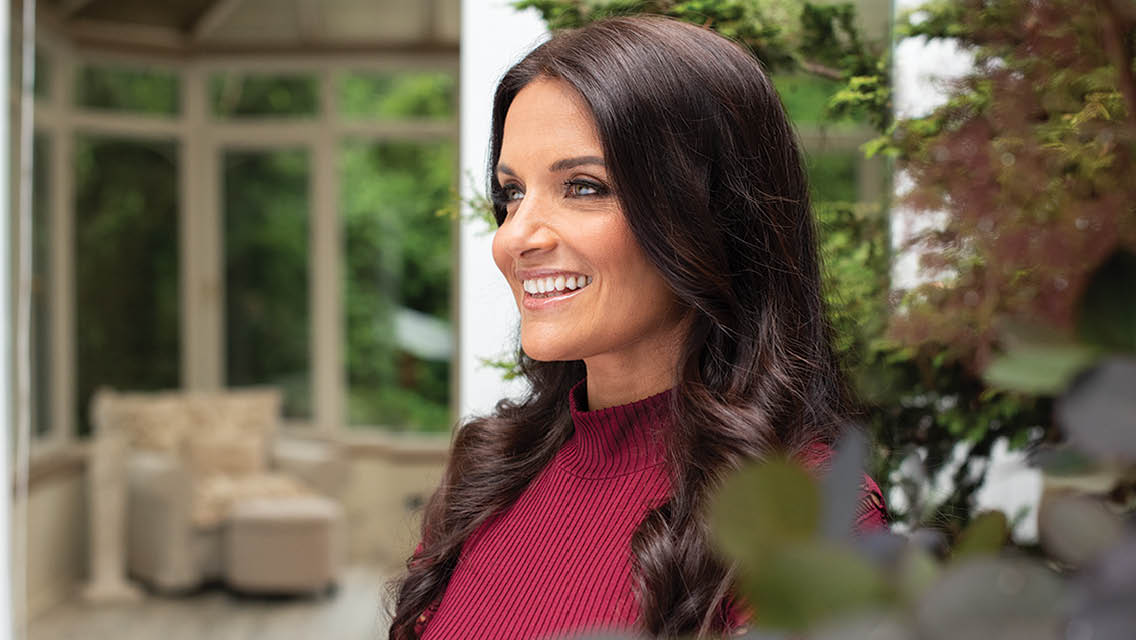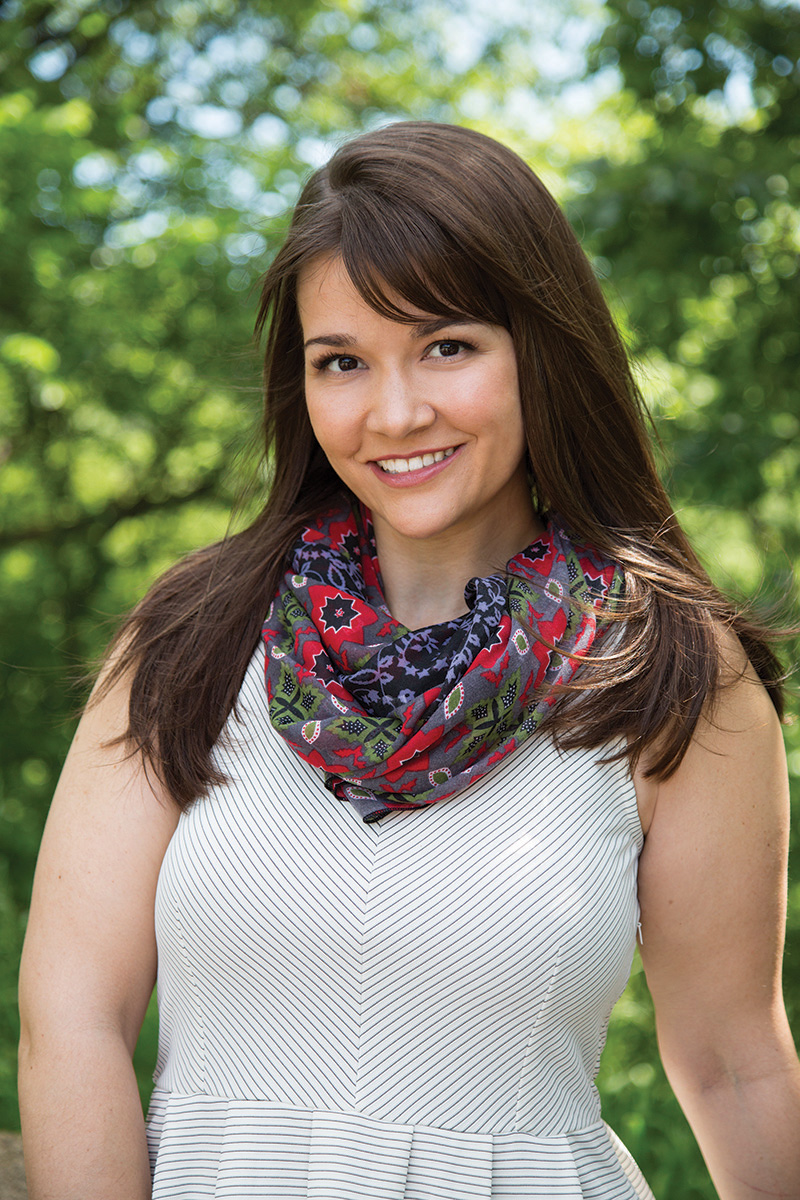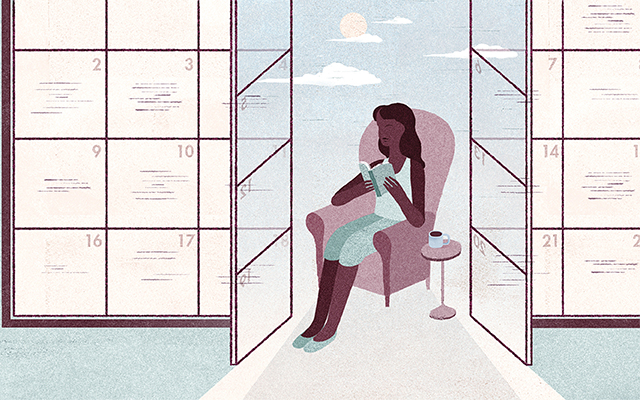Sometimes in life, we get struck by the proverbial bolt of lightning that pushes us in the direction of change. For Shefali Tsabary, PhD, (who prefers to go by Dr. Shefali) that moment came when she strayed off the highway one day and narrowly avoided a serious collision.
“I was exhausted, and I fell asleep at the wheel,” she recalls. “It was high traffic, and I just veered off the road without even realizing. I was inches off a tree when I got jolted awake.”
The New York–based clinical psychologist was completing her PhD program at the time while raising her young daughter. “It was such a wake-up call to me that I had really lost myself in this motherhood, in this achievement, in life-hood — and I knew that I was in trouble.”
Born in Mumbai, India, Dr. Shefali studied at Columbia University, where she earned her doctorate in clinical psychology, but her approach as a therapist and author is uniquely hers: a blend of Western psychology and Eastern philosophy that promotes mindfulness while acknowledging the challenges of our harried Western lifestyles.
Her books — three of which are New York Times bestsellers — compassionately encourage readers to bring their consciousness to a higher level in parenting, in their relationships, and in their state of being in the world. The Conscious Parent and The Awakened Family reframe the parent–child relationship into one of teacher–teacher, a method she found useful in raising her daughter, Maia, who’s now an adult. As Dr. Shefali notes, “she inspires me with her authenticity on a daily basis.”
With her parenting books, she wanted to “turn the traditional parenting paradigm on its head and challenge parents to understand that you have to raise yourself and evolve and heal your own baggage before you can even dare to do this with your children.”
Her near accident spurred the idea for her fifth and most recent book, A Radical Awakening. Sharing her experience of enlightenment on the paths of motherhood and womanhood as a perennial caregiver, Dr. Shefali describes emerging as a more liberated woman who knows that her sense of self extends beyond the roles she fulfills. Her story lands at an inflection point after a year like no other, when many of us are reimagining a path forward.
“Our life is constantly speaking to us,” she notes. How we listen and show up will be up to us.
Q&A With Dr. Shefali
Experience Life | The big question: How do we become awakened?
Dr. Shefali | Typically, people become awakened unintentionally, kicking and screaming when things fall apart in their lives. If we don’t want to do it through trauma, and we don’t want to do it through hitting rock bottom, then we do it because we are seekers — we want to uncover why we’re behaving the way we are. Our curiosity will allow us to become aware of our patterns.
EL | “Awakening” has been part of the wellness world for some time, but the current cultural vernacular has adopted it as people try to make sense of the pandemic or understanding systemic issues of inequity. Can you clarify this quest for us, whether you see it as individual or societal?
DS | You’re right that the pandemic has kind of forced us back into our homes. And in the midst of the social unrest in the world, what I would wish for people is that they go back to their inner home, the home within that they have absconded to a long time ago. It’s connected. Unless we awaken from the micro, the macro will never awaken.
Pre-pandemic we were living really manic, driven lives with incessant doing, distractions, and rabid achievement. The pandemic put a screeching halt to all of it, and it disoriented us. It created this traumatic pause that we were not ready for, and we felt displaced even though we were actually being invited for the first time in decades to really sit with ourselves. It begins on an individual level, which then bleeds into the macro.
EL | We’ve experienced new states of being and feeling during the pandemic, including what New York Times columnist Adam Grant dubbed “languishing.” How do you recommend people move through these emotions with new understanding, self-care, and grace?
DS | A crisis moment is a friend in a way because it’s so clear. What you’re talking about is even more scary because it can continue for eons. It’s not terrible, but it’s not amazing — it’s OK. And the OK is languishing: just going about your motions robotically, feeling this anguish, this low-lying anxiety, but not really hitting a wall. That’s even more painful to me — I’d rather hit the wall already.
If I were listening to someone who feels like they are languishing, kind of losing their sense of vitality, their sense of this enlivened empowerment where they feel in charge of their choices, then I would say that’s a wake-up call.
In my life, when I feel those languishing moments, I immediately look around me to see what I need to shake up, stir up, change up.
EL | Those seem like good internal exercises, but change doesn’t come without societal pressures, specifically what you call the “triple threat” of validation, praise, and approval. How does that hinder our progress, especially when it comes to health and well-being?
DS | We seek more than anything to receive approval, validation, and praise from the outside world. Approval means receiving permission to exist; validation honors my existence; and praise celebrates me.
Young girls, especially, are trained to be good — and good not only in their behavior, but also good at seeking love and worth from the outside and from their parents. A “good” girl is one who makes everyone happy and doesn’t rock the boat and isn’t too loud.
We need to stop this childish dependency on other people’s opinions of us, and that’s the way to set ourselves free. We need to replace this idea of the good girl, the perfect girl, and replace it with the authentic girl.
In health, we have to listen to our bodies. We have to be in flow to adjust, so there are days that you could run for five minutes, there are days that you walk for an hour, there are days that you just go around your block or you lift a few weights. Life is meant to be periods of rest interspersed with periods of great activity; I’m not a firm believer of endless activity.
Again, just like with all the other standards, we think there’s a way to be and don’t pay attention to what our body needs. You can constantly attune to yourself and not do things for the image of it, but for what feels right for you.
EL | You cover many issues through the challenges of the patriarchal society, but you also share ideas for individuals who identify as men and want to be allies. What’s your advice?
DS | This book is as much for men — even though it’s centered on women — because we need our men to support us. We need our men to honor us, to help us to decondition from all that insecurity that we’ve been ridden with because of culture, to help us to feel beautiful in our own skin, to not compare us, and to allow us to be heard and respected for our inner voice.
EL | As we continue to emerge from the pandemic and enter a new season, what do you hope for humankind as we readjust to our new world?
DS | My vision is that this pandemic has been a wake-up call for us to stop consuming to the manic levels we were before and truly enter a newfound sense of simplicity or narrowness, quietude, and connection. I think that’s the vision of this new decade that the pandemic is setting us off on.
Tune in! To hear more from Dr. Shefali, visit The Life Time Talks Podcast.
This article originally appeared as “Awakened Spirit” in the September 2021 issue of Experience Life.





This Post Has 0 Comments